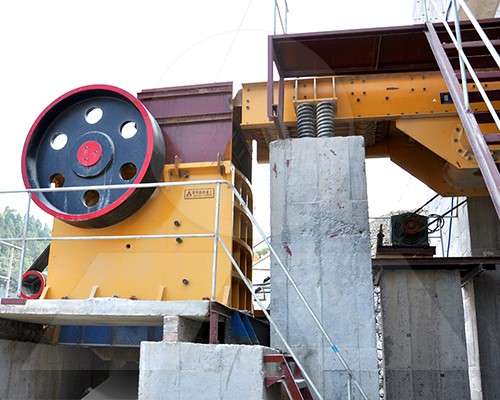Key Process Points for Crushing Volcanic Rock in Indonesia with Jaw Crushers
Volcanic rock, commonly found throughout Indonesia, is a highly abrasive and hard material often used in construction and infrastructure projects. Jaw crushers have proven to be reliable equipment for the primary crushing of such hard rock types. However, effective processing requires careful attention to certain technical and operational parameters to ensure efficiency and longevity.
Why Use Jaw Crushers for Volcanic Rock?
Jaw crushers are favored for volcanic rock due to their:
- High compressive strength – Ideal for hard and dense volcanic basalt
- Simple structure and maintenance – Reduced downtime in rugged environments
- Consistent product size – Suitable for further processing or direct use
Indonesia’s terrain, with its widespread volcanic deposits, demands robust machinery. Jaw crushers can be adapted to suit the specific needs of the local geology.

Key Process Considerations
1. Feed Size Control
Large volcanic rocks should be pre-screened or pre-crushed to ensure they do not exceed the jaw crusher’s input capacity (e.g., ≤600mm). Oversized rocks can:
- Cause blockages
- Accelerate wear on jaw plates
2. Jaw Plate Material Selection
For abrasive volcanic rock, manganese steel or manganese-chromium alloy jaw plates offer better resistance and longer service life.
3. Crushing Chamber Optimization
Adjusting the jaw angle and CSS (closed side setting) helps improve:
- Throughput
- Product size uniformity
- Energy efficiency
4. Dust and Vibration Management
Volcanic rock crushing generates high dust levels. Use of:
- Dust suppression systems
- Sealed bearings
- Anti-vibration mounts
helps extend the machine life and improve operator safety.
5. Capacity Matching
For medium-scale Indonesian operations, jaw crushers with 100–300 TPH capacity are ideal, balancing performance with operational cost.
Case Study: Volcanic Rock Crushing in Java, Indonesia
A quarry in East Java uses a 250 TPH jaw crusher to crush local volcanic basalt into 0–40mm aggregates. Key practices include:
- Regular jaw plate replacement every 900 hours
- Using feeder grizzlies to sort fine ash from larger stones
- Pairing with cone crushers for secondary crushing
The operation has seen a 20% reduction in maintenance downtime and improved material consistency.
Conclusion
Crushing volcanic rock in Indonesia requires a reliable, heavy-duty solution. Jaw crushers are ideally suited for this task when process parameters like feed size, chamber design, and wear part material are carefully managed. Optimizing the crushing process ensures maximum uptime, better product quality, and longer equipment lifespan, which is essential for the competitive Indonesian construction and mining markets.
Looking for a jaw crusher for your Indonesian volcanic rock project?
Contact us for custom solutions and on-site support.
- > Vertical Shaft Impact Crusher for Limestone Crushing in Venezuela
- > Top Mobile Crushing Solutions for Small-Scale Gold Mining Operations in Africa
- > The Role of Vibrating Feeders in Artificial Sand Production: Enhancing Efficiency and Output
- > Key Reasons Behind Low Output in Jaw Crushers and How to Address Them
- > Impact Crusher for Construction Waste Recycling in Australia
- > The Significance of Gyratory Cone Crushers: Key Advantages in Crushing Operations
- > Mobile Cone Crusher: Revolutionizing Construction Waste Recycling
- > Application of PE-600×900 Jaw Crusher in Railway Ballast Production Line


Online




Message
